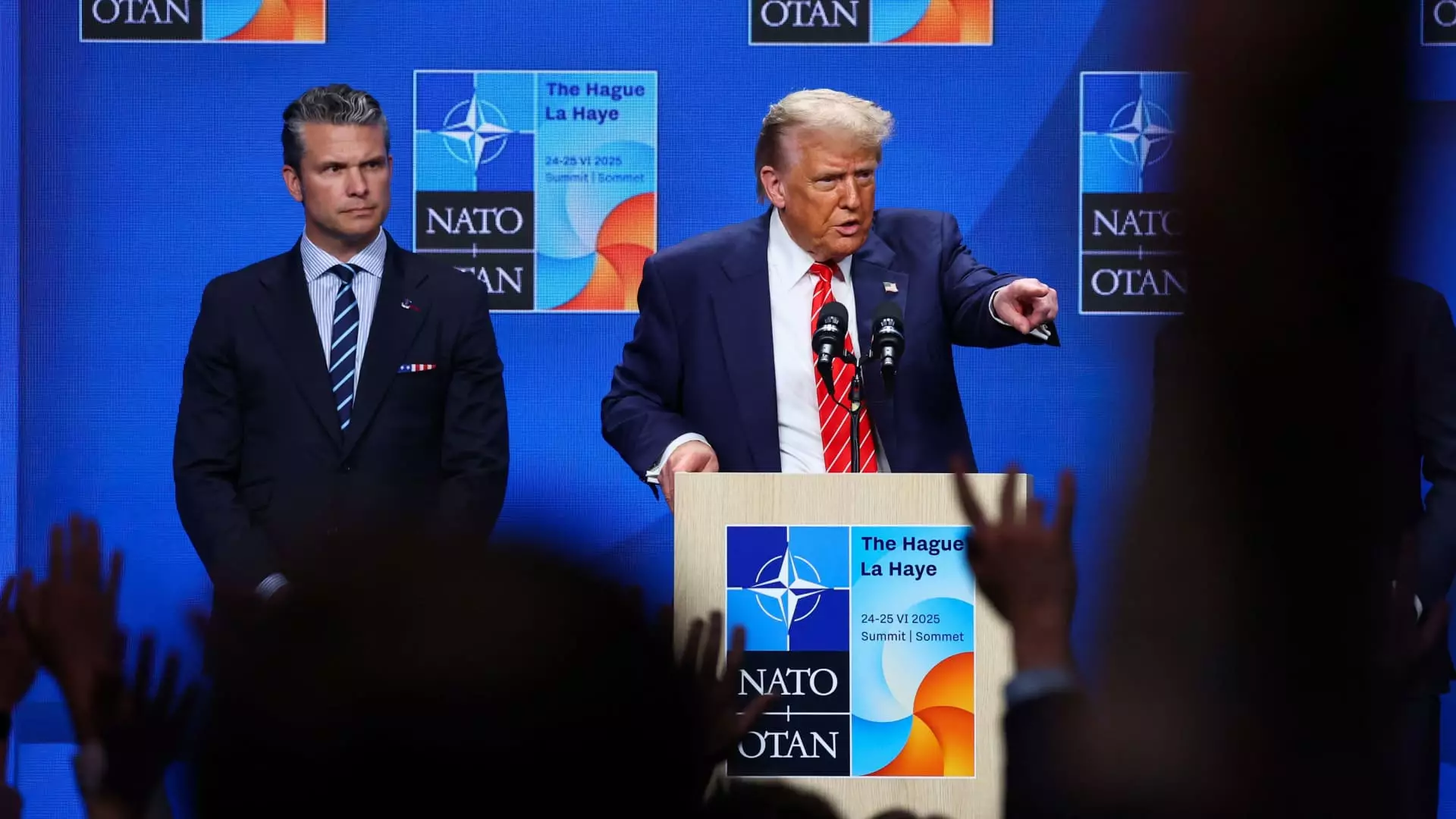In an era where transparency is paramount, the bold declarations from President Donald Trump regarding the obliteration of Iran’s nuclear capabilities paint a troubling picture. With an unwavering conviction, he asserted that U.S. airstrikes had completely annihilated the Iranian facility at Fordo. Yet, upon closer inspection, evidence reveals a narrative imbued with hyperbole and an unnerving dismissal of critical intelligence assessments. Such tactics can only be interpreted as desperate attempts to secure a narrative rather than truthful representation of American military efficacy.
The preliminary intelligence assessment indicates that while airstrikes had some impact, they only set back Iran’s nuclear ambitions by a matter of months, not the years that fervent supporters of military action might hope. This gap between Trump’s bombastic claims and the more measured realities of intelligence underscores a profound disconnect that could have serious ramifications for U.S. foreign policy in the Middle East.
The Fragility of Trust
Confidence in governmental claims is increasingly fragile, as evidenced by the polarization surrounding these proclamations. When Trump suggested that no sufficient investigation had taken place before the formulation of the intelligence report, he not only undermined national institutions but also sowed discord among the very community of analysts and operatives tasked with protecting American interests. The dismissive rhetoric directed at those who dare to present a contrary opinion—calling them “anonymous, low-level losers”—speaks volumes about the administration’s unwillingness to engage in honest discourse.
Press Secretary Karoline Leavitt’s aggressive denouncement of the intelligence report further exacerbates concerns about the reliability of information emanating from the White House. Such a dismissal of critical insights poses grave risks: a failure to assess threats accurately leads to poor decision-making. A healthy democracy thrives on differing viewpoints and a willingness to listen. Yet, as the lines between truth and propaganda blur further with every aggressive denial, the question arises: who benefits from maintaining this facade?
The Role of the Media
Media portrayals of warfare have always been contentious, and the ongoing debate surrounding the effectiveness of the strikes against Iran is no exception. While the administration insists on labeling dissenting analyses as “fake news,” this stigmatization stifles necessary scrutiny. Responsible journalism should serve as a check on power, but a growing fear within media circles of being labeled as antagonistic hampers accountability.
The council of war, wherein military and intelligence operations are cloaked in shades of ambiguity, demands a nuanced approach from journalists. They must endeavor to dissect official narratives critically, especially when confronted with inconsistencies. This task is further complicated by the emotional weight of national security matters, which can quickly turn public sentiment against those who dare to challenge the prevailing narrative.
Implications for Global Conduct
The implications of trumpet claims about military strength extend beyond national borders. International relations are complex, and military action is often rife with unintended consequences. In this case, framing the situation as an unequivocal victory could embolden hostile responses from Iran, bolstering the narrative that the U.S. is an aggressor rather than a protector. Such dynamics could inspire further unrest and instability in an already volatile region.
Capability claims, when exaggerated, also influence perceptions among allies and adversaries alike. Allies may question the U.S.’s reliability and strategic intelligence, while adversaries could perceive a vulnerable opportunity to counteract America’s perceived dominance. Military strategy demands an appreciation of nuance and a clear understanding of long-term implications, not just short-lived bragging rights.
In the end, the reality behind military actions is often layered and complex, requiring careful, reasoned dialogue both domestically and internationally. Abandoning the pursuit of truth for political expediency ultimately trivializes the sacrifices that military personnel make in service to their country. It is the responsibility of a rigorous democracy to hold its leaders accountable, ensuring that truth prevails in times of conflict, rather than fanfare and aggressive nationalism.



Leave a Reply